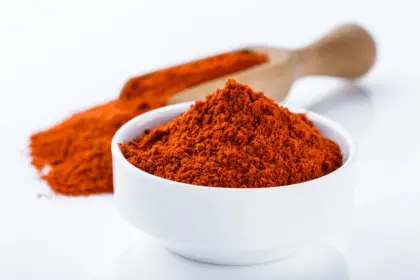In our quest for optimal health and well-being, we often overlook the potential therapeutic properties of simple products such as baking soda. This humble kitchen staple known for its culinary uses and ability to leaven dough, but also has a long list of health benefits when taken orally.
Baking soda, a common kitchen ingredient, has been used for generations as a home remedy for its antacid properties. However, recent research suggests that its benefits extend beyond that, showing its potential as an effective aid in treating autoimmune diseases and inflammation.
Researchers from the Medical College of Georgia at Augusta University conducted a study to understand how drinking a solution of baking soda(recipe below) could help the immune system fight against inflammatory diseases. They tested the effects of the solution on both rats and humans.
The study revealed that baking soda sends a signal to a specific type of cell called mesothelial cells, informing them that the body is not under attack. This signal prevents an aggressive immune response, thereby averting harmful autoimmune reactions.

Mesothelial cells line various organs and body cavities, serving multiple functions, including preventing tissue adhesion. The study found that baking soda influences these cells, instructing them to stay calm because there is no threat.
Baking soda stimulates the stomach to produce more gastric acid, aiding in quicker and easier digestion. Additionally, it tells the mesothelial cells lining the spleen to remain inactive, as there is no need for an immune response.
The researchers observed a shift in the types of immune cells activated in the spleen of participants who drank the baking soda solution. The number of pro-inflammatory cells decreased, while the levels of anti-inflammatory cells increased. Similar effects were seen in the blood and kidneys.
The presence of these immune cells in the blood and kidneys led the researchers to explore how baking soda might improve renal function. They conducted experiments on rats with kidney disease and healthy rats.
In both cases, the levels of pro-inflammatory cells decreased, while the levels of anti-inflammatory cells increased. This suggested that baking soda could influence the inflammatory response at the cellular level.

When healthy medical students consumed the baking soda solution, the researchers observed anti-inflammatory effects in both the spleen and the blood. The shift from an inflammatory to an anti-inflammatory profile was evident across various organs.
The study also revealed that mesothelial cells play a crucial role in mediating the anti-inflammatory signals. Previously, it was believed that signals were transmitted through the vagus nerve.
However, experiments disproved this theory. Cutting off the vagus nerve did not affect the behavior of mesothelial cells, indicating a more direct communication between these cells and the organs they line.
The findings provide insight into why baking soda can help with autoimmune diseases, including arthritis. Further research into these mechanisms could help optimize the use of this common compound.
Recommendations For Ingestion
If you’re interested in drinking baking soda, it is recommended to
- Take it on an empty stomach, preferably one hour before lunch or one hour after dinner.
- Start with a small dose, such as 1/8 teaspoon, and gradually increase it to 1/4 teaspoon. (Over consumption can lead to side effects like shortness of breath or a racing heart.)
- Avoid drinking it if your blood is already alkaline, as excessive baking soda intake can have harmful effects, including a heart attack or alkalosis.
Before starting to drink baking soda, it’s advisable to have your sodium levels checked by a doctor, especially if you’re uncertain. Ideally, your potassium, magnesium, and sodium levels should be balanced. Additionally, if you’re taking supplements or thyroid medication, note that baking soda may affect the absorption of these medications.
Complete Health Benefits Of Ingesting Baking Soda:

- Alleviating heartburn and acid reflux: Baking soda can act as an antacid, neutralizing excess stomach acid and providing relief from heartburn and acid reflux symptoms. However, it should be used sparingly and under the guidance of a healthcare professional due to its high sodium content.
- Urinary tract health: Baking soda may help reduce symptoms associated with urinary tract infections (UTIs) by making the urine less acidic, which can create an unfavorable environment for bacteria to thrive. However, it’s important to note that baking soda is not a substitute for medical treatment and should not replace appropriate medical care for UTIs.
- Kidney health: Some studies suggest that baking soda may help slow the progression of chronic kidney disease (CKD) by reducing the acidity of the blood and urine. However, the use of baking soda for kidney health should be discussed with a healthcare professional to determine appropriate dosages and potential risks.
- Exercise performance and muscle fatigue: Baking soda has been studied as a potential ergogenic aid, meaning it may enhance exercise performance. It is believed to buffer lactic acid buildup in muscles, delaying fatigue and improving endurance. However, more research is needed to fully understand its effects and optimal usage.
- Indigestion and stomach upset: Baking soda’s alkaline nature can help neutralize stomach acid, providing relief from indigestion, gas, and stomach upset. However, it’s important to address the underlying cause of these symptoms and not rely solely on baking soda as a long-term solution.
- Oral health: Baking soda is often used as a natural toothpaste or mouth rinse due to its ability to help remove plaque, whiten teeth, and freshen breath. However, it should be used in moderation to avoid damaging tooth enamel.
- Skin conditions: Baking soda is occasionally used topically to alleviate itching and irritation associated with certain skin conditions like insect bites, sunburn, and allergic reactions. However, it’s important to be cautious and conduct a patch test to check for any adverse reactions.
It’s crucial to note that ingesting baking soda in excessive amounts or for prolonged periods can lead to electrolyte imbalances, high blood pressure, and other adverse effects. Baking soda should always be used under the guidance of a healthcare professional, especially for therapeutic purposes.
How To Modulate The Immune System With Herbs:
If you have an autoimmune condition it may be worth looking into and taking Radiate 21. This is a formula that includes 21 herbs, spices, roots and botanicals that support the modulation of the immune system. Why is modulating the immune system so important? This means that it turns the immune system down or up depending on which direction it needs to go in. The immune system doesn’t need to be ‘boosted’ all the time because this can create an immune system that is overactive and working too hard. You want your immune system to be intelligent, and to act when necessary. Not act all the time.
Additionally, Radiate 21 helps to heal the gut lining, support the lymphatic system by helping facilitate in its detoxification as well as to protect from radiation and EMF’s.
You can visit Radiate21.com to learn more about this innovative formula that utilizes herbs from Amazonian, Ayurvedic and Chinese medicine in one single formula.





